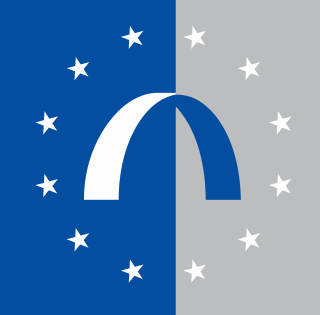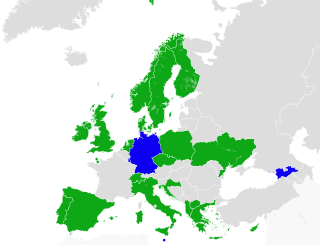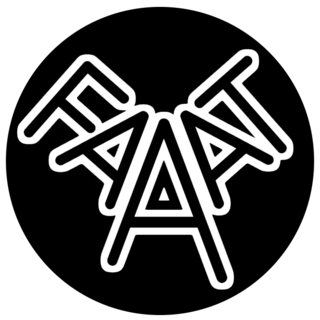
The Council of the European Union, often referred to in the treaties and other official documents simply as the Council, and informally known as the Council of Ministers, is the third of the seven Institutions of the European Union (EU) as listed in the Treaty on European Union. It is one of two legislative bodies and together with the European Parliament serves to amend and approve or veto the proposals of the European Commission, which holds the right of initiative.

The European Council is a collegiate body that defines the overall political direction and priorities of the European Union. The European Council is part of the executive of the European Union (EU), beside the European Commission. It is composed of the heads of state or of government of the EU member states, the President of the European Council, and the President of the European Commission. The High Representative of the Union for Foreign Affairs and Security Policy also takes part in its meetings.

While recreational use, possession and trade of non-medicinal drugs described by the Opium Law are all technically illegal under Dutch law, official policy since the late 20th century has been to openly tolerate all recreational use while tolerating possession and trade under certain circumstances. This pragmatic approach was motivated by the idea that a drug-free Dutch society is unrealistic and unattainable, and efforts would be better spent trying to minimize harm caused by recreational drug use. As a result of this gedoogbeleid, the Netherlands is typically seen as much more tolerant of drugs than most other countries.
The European Coalition for Just and Effective Drug Policies (ENCOD), originally European NGO Council On Drugs and development, is a network of European non-governmental organisations and citizens concerned with the impact of current international drug policies on the lives of the most affected sectors in Europe and the Global South. Since 1994 they have been working to advocate more just and effective drugs control policies, which include an integrated solution for all problems related to the global drugs phenomenon.

COREPER, from French Comité des représentants permanents, is the Committee of Permanent Representatives in the European Union, made up of the head or deputy head of mission from the EU member states in Brussels.

The Single Convention on Narcotic Drugs, 1961 is a United Nations treaty that controls activities of specific narcotic drugs and lays down a system of regulations for their medical and scientific uses; it also establishes the International Narcotics Control Board.
The International Narcotics Control Board (INCB) is an independent treaty body, one of the four treaty-mandated bodies under international drug control law.

The Commission on Narcotic Drugs (CND) is one of the functional commissions of the United Nations' Economic and Social Council (ECOSOC), and is the central drug policy-making body within the United Nations System. The CND also has important mandates under the three international drug control conventions, alongside the three other treaty-mandated bodies: United Nations Office on Drugs and Crime, World Health Organization, and International Narcotics Control Board.

The European Union Drugs Agency (EUDA), known until 2024 as the European Monitoring Centre for Drugs and Drug Addiction (EMCDDA), is an agency of the European Union headquartered in Lisbon, Portugal, and established in 1993.
A drug policy is the policy regarding the control and regulation of psychoactive substances, particularly those that are addictive or cause physical and mental dependence. While drug policies are generally implemented by governments, entities at all levels may have specific policies related to drugs.
The drug policy of Sweden is based on zero tolerance focusing on prevention, treatment, and control, aiming to reduce both the supply of and demand for illegal drugs. The general drug policy is supported by all major Swedish political parties with the exceptions of the Left Party – which advocates for the decriminalization of private consumption – and 5 of the 7 major parties' youth wings.
The drug policy of Portugal, informally called the "drug strategy", was put in place in 2000, and came into effect in July 2001. Its purpose was to reduce the number of new HIV/AIDS cases in the country, as it was estimated around half of new cases came from injection drug use.

The area of freedom, security and justice (AFSJ) of the European Union (EU) is a policy domain concerning home affairs and migration, justice as well as fundamental rights, developed to address the challenges posed to internal security by collateral effects of the free movement of people and goods in the absence of border controls or customs inspection throughout the Schengen Area, as well as to safeguard adherence to the common European values through ensuring that the fundamental rights of people are respected across the EU.
Council of the European Union decisions on designer drugs. Council of the European Union issued a set of decisions on 7 designer drugs to make them subject to control measures and criminal provisions.

Cannabis is one of the most popular controlled substances for cultivation and consumption within the country of Belgium. Following global trends, cannabis consumption rates in Belgium have been steadily increasing across the country since the 20th century, and cannabis cultivation continues to expand rapidly on a national scale. Despite significant legal rework of cannabis-related laws since 2010, certain elements of the consumption and cultivation of cannabis are considered to exist within a “legal grey area” of Belgian law. Cannabis is technically illegal in Belgium, but personal possession has been decriminalised since 2003; adults over the age of 18 are allowed to possess up to 3 grams. The legal effort to restrict cultivation and growth has gradually subsided, resulting in an increase of the growth and consumption of cannabis and cannabis-related products.

For Alternative Approaches to Addiction, Think & do tank is an international non-profit organization working on drug policy, created in 2015 and based in Paris, France.
The Trans-European Drug Information (TEDI) project is a European database compiling information from different drug checking services located on the European continent. The non-governmental organizations feeding into the database are referred to as the TEDI network.
The removal of cannabis and cannabis resin from Schedule IV of the Single Convention on narcotic drugs, 1961 is a change in international law that took place from 2019 to 2021, on the basis of a scientific assessment by the World Health Organization.

The Council of Europe International Cooperation Group on Drugs and Addiction, also known as Pompidou Group is the co-operation platform of the Council of Europe on matters of drug policy currently composed of 42 countries. It was established as an ad'hoc inter-governmental platform in 1971 until its incorporation into the Council of Europe in 1980. Its headquarters are in Strasbourg, France.













